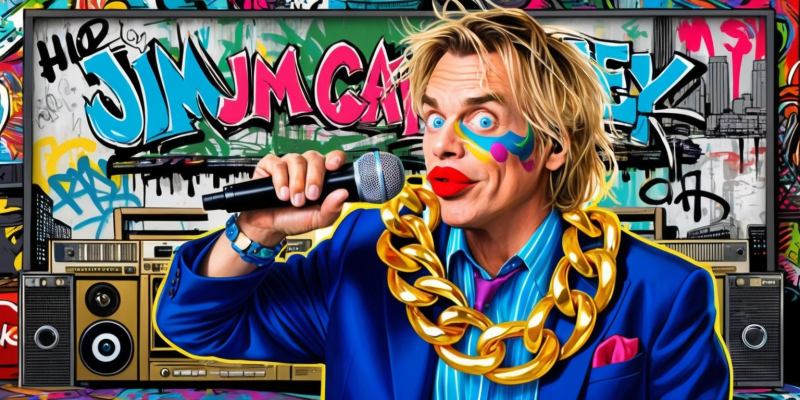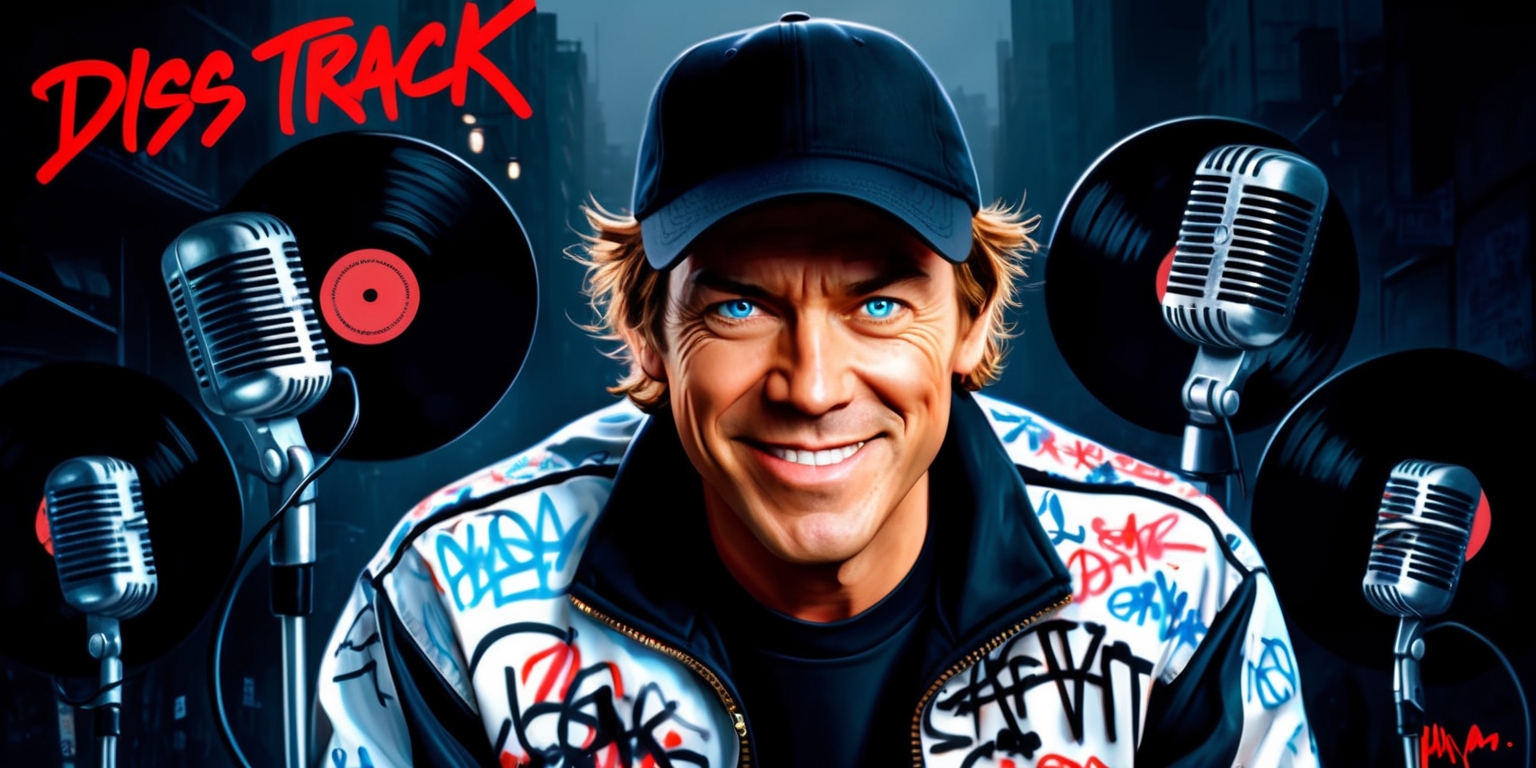When Laughter Meets Lyrics: Jim Carrey's Hilarious Diss Track and the Culture Clash of Hip-Hop

In a society where the lines of celebrity culture frequently become indistinct the line between admiration and mockery, few moments resonate as powerfully as when icons transcend their usual domains. It’s not every day that you see a legendary funnyman step into the battle arena of hip-hop and emerge victorious. Recently, Jim Carrey took a bold swing at the celebrated rapper Drake, not in the way you might think, but through an unexpected throwback diss track that harkens back to his '90s comedy roots. As the tension in the rap scene simmers, and controversies abound over authenticity and identity, Carrey's playful yet piercing lyrics provide a satirical commentary that hits home. Buckle up as we explore this remarkable cultural intersection of comedy and music.
Jim Carrey’s Unexpected Comeback
Even as a comedy icon, Jim Carrey often surprises us with his versatility. In a nostalgic return to his comedic roots, he has emerged with a diss track that manages to sparkle with the essence of '90s hip-hop while simultaneously poking at the glaring flaws within modern celebrity culture.
A Comedy Legend Takes Aim
Carrey, known for his physical comedy and memorable characters, has seldom ventured into musical critiques of this nature. Yet, he showcased a raw, untethered energy that offends the status quo, shining a light on Drake’s controversies in a way that is as entertaining as it is brutally honest.
Sarcasm Meets Seriousness
At first glance, the lyrics may seem humorous, but they harbor a deeper commentary. Jim Carrey's clever wordplay acts as a mirror reflecting the cultural tensions of the current music scene. Lines that once seemed silly now echo the ongoing debates about identity and authenticity in the hip-hop community.
Unveiling Identity Crisis

The very kernel of Carrey's critique falls onto Drake—a figure who has repeatedly faced accusations of cultural appropriation, raising questions about his authenticity in a genre deeply rooted in Black culture. Here is where Carrey’s satire finds its greatest strength, playfully exposing the contradictions inherent in the debate.
Lyrics That Make You Think
Lines from Carrey's renowned track, initially a jab at a white reggae artist, turn into a compelling reflection on the state of contemporary music. With lines probing identity and heritage, the satire resonates strongly within the framework of today's cultural discussions.
Cultural Appropriation Under a Microscope
Carrey’s words unmistakably dissect the complexities surrounding cultural appropriation. They highlight how certain artists capitalize on cultural elements while straddling multiple identities in their quest for commercial success. This has ignited significant discussion among enthusiasts and reviewers collectively.
Drake: The Subject of Viral Critique
With the resurgence of Carrey's track, Drake finds himself once again in the public eye due to circumstances that extend beyond his music. The calls to react to perceived insincerities in his identity have been amplified by the lyrical content that Carrey casually unfolds, reigniting discussions that have long hovered in music circles.
Competitive Landscape in Hip-Hop
The drama within the hip-hop domain is ever-evolving, especially with growing tensions between Drake and contemporaries like Kendrick Lamar and J. Cole. Each artist brings a unique voice, but debates about legitimacy and authenticity complicate their relationships, further exacerbated by Carrey’s satirical take.
The Impact of Humor in Social Critique
What Carrey accomplishes with comedic timing is nothing short of extraordinary. By pairing humor with serious cultural issues, he invites listeners to reassess not only their opinions on music but also societal norms. His track becomes a vehicle to examine sensitivities that are often taken lightly.
Drake’s Ever-Changing Image
Drake has navigated through various phases of his career, but the shadows of doubt regarding his authenticity continue to loom. The interplay of Carrey’s lyrics with Drake’s evolution only adds layers to the conversation around what it means to be genuine in the spotlight.
Sonic the Hedgehog Brings Carrey Back to Fame
Simultaneously, Carrey’s role in the cinematic universe, particularly as Dr. Robotnik in the popular Sonic the Hedgehog series, affirms his return to mainstream success. The film garnered positive reception and broke box office records, solidifying Carrey’s versatility as he juggles comedy and acting with flair.
A Look at Sonic's Success
With the franchise’s expansion, including a sequel and third installment on the horizon, Jim Carrey's character breathes life into a beloved series. Supporters are eagerly marking off the calendar as they anticipate the arrival of they can see him reprise his role in an anticipated addition to the franchise.
Nostalgia Meets Modernity
There is something deeply nostalgic about hearing Carrey’s style resonating within a modern context. Audiences are drawn to the fusion of classic humor and contemporary cultural commentary, offering a unique opportunity to contemplate the extent of transformation that has occurred—however, in some ways, how little has shifted in terms of identity in the entertainment industry.
The Future of Cultural Critique
As we look ahead, the dialogue sparked by Carrey's diss track may influence future artistic expressions. Creatives are more likely to engage with issues around cultural appropriation and identity through a variety of mediums, from music to comedy.
What It Means to Be "Cool"
Ultimately, the question remains: what does it truly mean to be cool? While some may squabble for the title, it’s evident that authenticity and the ability to provoke thought often reign supreme. Jim Carrey has undeniably reminded us of this through his unexpected foray into the world of hip-hop critique.
In the intersection of comedy and commentary, Jim Carrey has not only carved out space for himself but has also helped illuminate pressing cultural dialogues, encouraging all of us to reflect even as we laugh. So, while you may think you’re cool, it’s worth pondering whether you’re prepared to welcome the intricacies of culture—with a dose of humor, of course.









User's Reviews (0)
Your comment is awaiting moderation. We save your draft here
Leave a comment